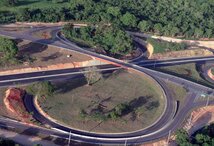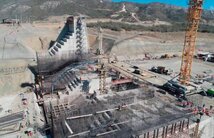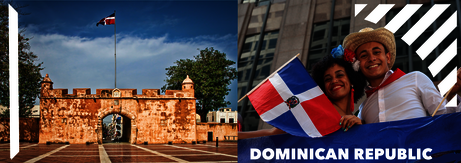Summary of operations
Road Infrastructure: Financing for 148 kilometers of highways.
Energy: Financing for the generation of 80 megawatts of clean renewable energy.
Agro Sector: US$ 60 million for the strengthening of the agricultural sector with a sustainable technological approach.
A 228% increase in the amount estimated in the 2021-2026 country strategy, reaching US$ 1.8 billion. In the previous five-year period the disbursement amounted US$ 533.9 million.
PROJECTS

Coral Highway Project
It consisted of the construction of a 70-kilometer-long, 4-lane highway, for which financing of US$70.0 million was allocated.

Improvement and Expansion of the Eastern Road Corridor for road sections
San Pedro de Macorís-La Romana Section, La Romana Beltway Section and Eastern Tourist Boulevard Section, totaling 78 kilometers in length and representing the best road infrastructure in the country.

Palomino Hydroelectric Project
With a clean and renewable energy generation capacity of 80 megawatts, it is located in the Province of San Juan. For its execution, the Bank allocated financing for a total amount of US$ 130.0 million

Construction of a 50-kilometer gas pipeline in San Pedro de Macorís
Loan in favor of AES Dominicana for a total amount of US$54.00 million.

Montegrande Multipurpose Dam Project Phase III
With current financing of US$249.6 million
CABEI and Korea approve $600,000 cooperation agreement to promote the development of Intelligent Traffic Systems in the Dominican Republic

These systems facilitate the collection, processing and provision of real-time traffic data, enabling improved road control and monitoring of road incidents and accidents
Santo Domingo, August 18th, 2022 - To help reduce the current mobility challenges in the Dominican Republic, the Central American Bank for Economic Integration (CABEI) and the Republic of Korea approved technical cooperation for US$600,000 to determine the feasibility of an Intelligent Traffic System (ITS) within the city of Santo Domingo and the national road system.
With these funds from the Korea-CABEI Partnership Single Donor Trust Fund (KTF), the design, development and optimal implementation of the ITS will be proposed, based on an analysis of current transportation and traffic systems, existing digital infrastructure capacity and coverage, as well as mobility conditions on major highways.
CABEI's Executive President, Dr. Dante Mossi emphasized, "We are very pleased to collaborate with our regional partner in identifying and evaluating this type of alternative to improve the collection, processing and provision of real-time traffic data, optimizing road control and the monitoring of road incidents and accidents. Undoubtedly, the transition of the country's road network to an intelligent infrastructure will contribute to improve mobility, but also the safety and quality of life of Dominicans."
Dr. Dante also commented that the Dominican government will be supported in strengthening the technical capacities of the National Institute of Transit and Land Transportation (INTRANT) in relation to the preparation, operation, maintenance and scalability of the ITS, based on the Korean experience in this sector and adapted to the local context.
The studies will provide recommendations on the technical specifications of the systems, the financial estimate for the development of the systems, and the regulatory framework and governance structure that will enable optimal implementation of the recommended Intelligent Traffic Systems.




